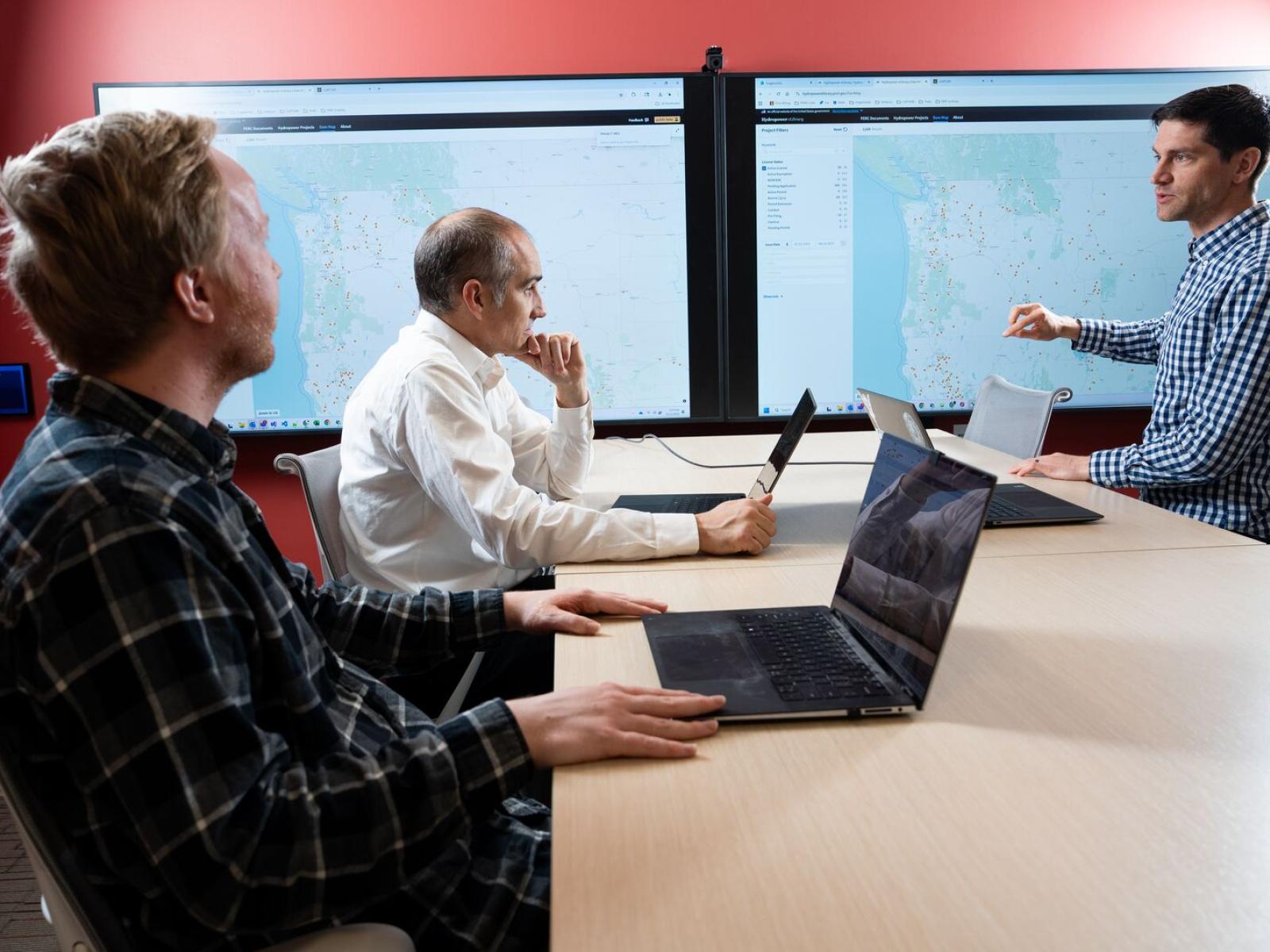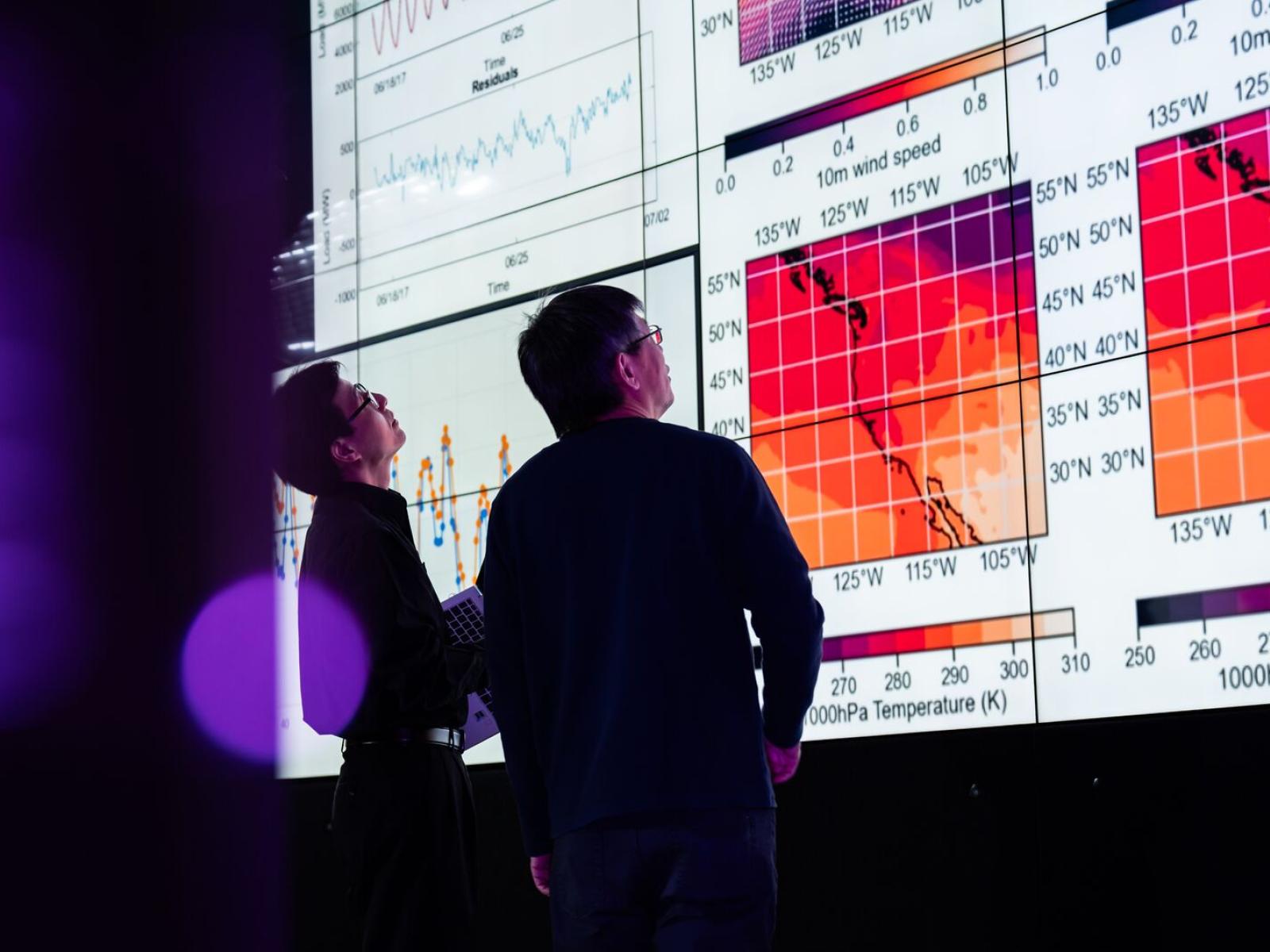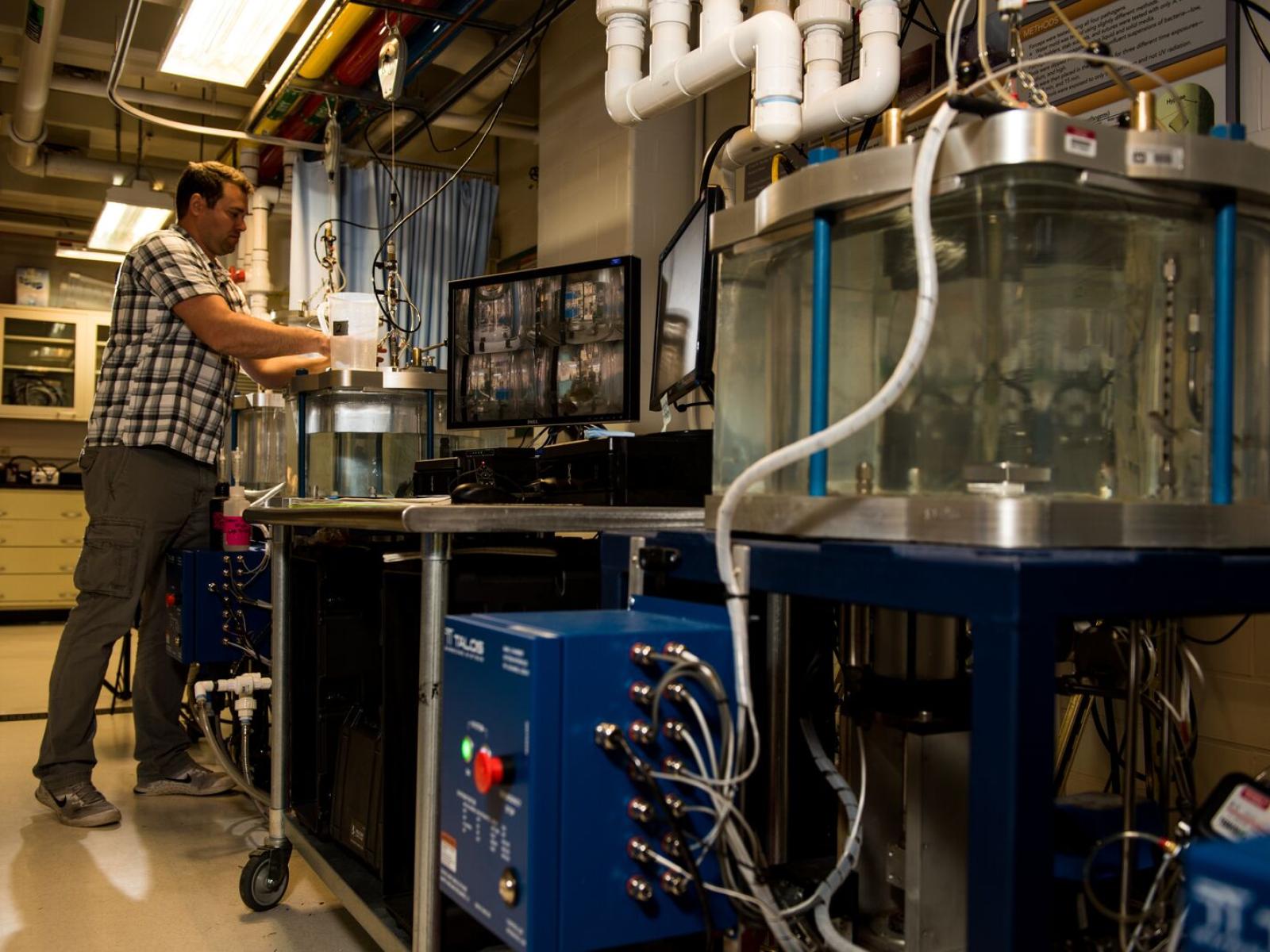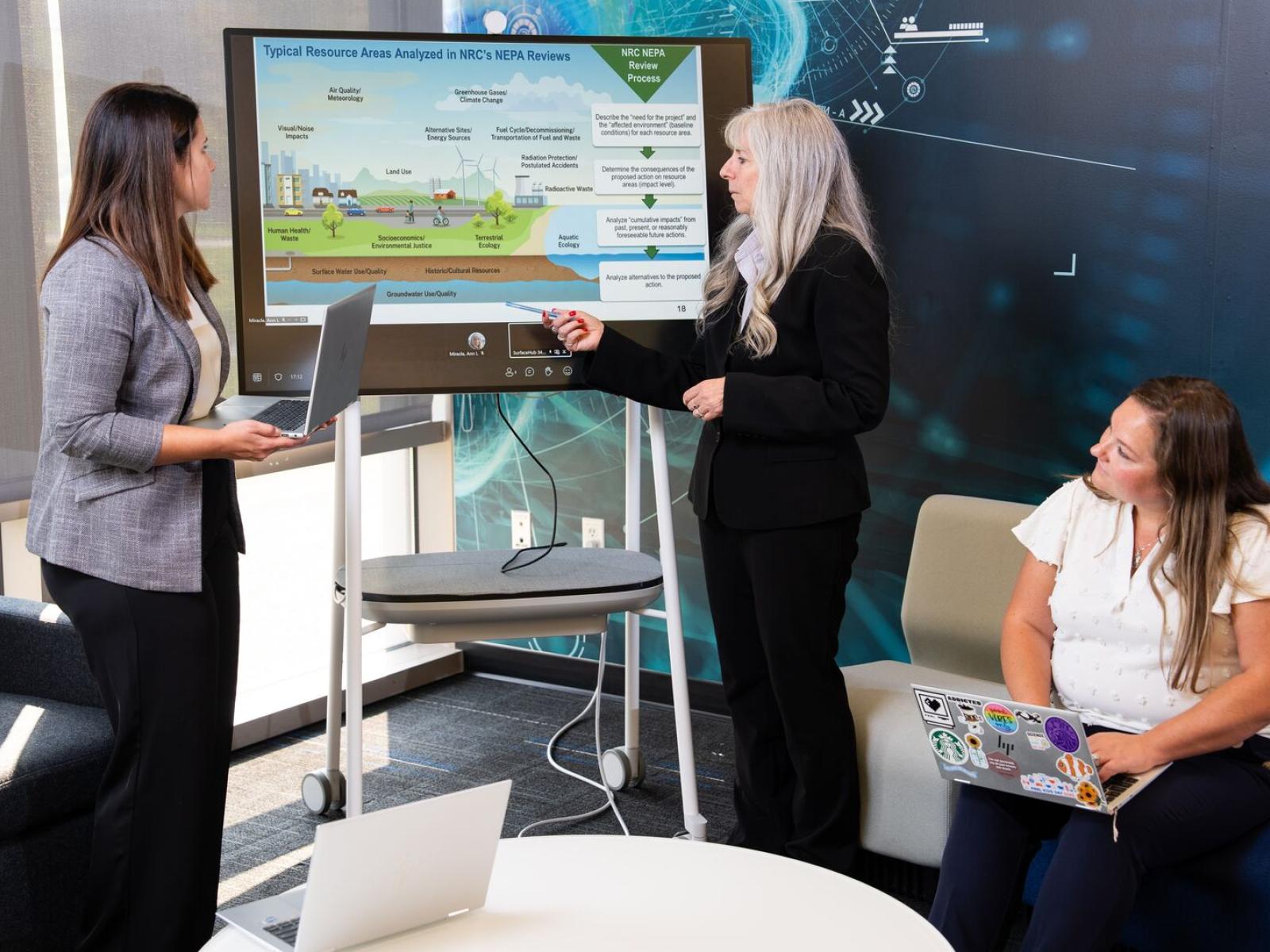Earth Systems Science Division
Earth Systems Science Division
The Earth Systems Science Division consists of five groups that represent our capability areas.
Applied Decision Systems and Analytics Group
Our researchers deliver complex, dynamic, decision frameworks in critical areas of energy, environment, security, and defense. The hallmark of this group is securely deploying advanced technology-based solutions, frequently bringing together complex disparate data streams and novel delivery systems, resulting in new insights and improved understanding for our sponsor communities. This group's professionals work with subject matter experts to identify, design, develop, and deploy innovative solutions, integrating expertise in software engineering, data science, systems engineering, and advanced visualization capabilities. Our expertise is in the following areas:
- Data driven software systems
- Data science and modeling
- Rapid response data delivery
- Software quality, reliability, lifecycle, and security

Researchers develop robust, reusable software tools encapsulating decision science capabilities and provides them to users and stakeholders.
Andrea Starr | Pacific Northwest National Laboratory
Earth Systems Predictability and Resiliency Group
We develop scientific basis for forecasting, monitoring, and verifying Earth-energy resilience. Our group provides operational intelligence and system performance forecasting that enables decision support with the ability to understand and predict how the coupling of human-Earth processes (e.g., climate, water, land use, and energy system interactions) controls complex Earth, energy, and environmental systems behavior. We use an integrated approach of sensing and measurement, environmental forensics, high-performance computing, spatial and non-spatial statistics, spatiotemporal analysis models, geographic information system algorithms, machine learning and artificial intelligence methods, and geovisualization. We identify unique markers indicative of natural processes to verify anthropogenic activity and understand the social impact of earth-energy system transitions. Our expertise is in the following areas:
- Earth systems data science
- Environmental and integrated sensors
- Geospatial science, analytics and geointelligence
- Watershed hydrology modeling

Through the development and applications of artificial intelligence, data mining, machine and deep learning, and uncertainty quantification techniques, data scientists in the Earth Systems Science Division help us understand and predict how the coupling of earth processes controls complex earth, energy, and environmental system behavior.
Andrea Starr | Pacific Northwest National Laboratory
Operational Systems Engineering Group
Our group leverages strengths in multidisciplinary engineering and integrated design to address challenges ranging from hydropower and ecological systems to border security and nuclear systems. Our group is conists of engineers, biologists, Earth and social scientists, technicians, and coordinators who are advancing scientific theory and principles to improve efficiency, mitigate the risks and impact on the natural environment, and provide engineered solutions to address risks. You will find our expertise in:
- Systems engineering
- Tradeoff engineering
- Waterpower data and analysis
- Waterpower engineering and operations
- Waterpower fisheries
- Waterpower science and ecology

PNNL staff operate computer-controlled barotrauma chambers. This data is used to determine the magnitude of decompression that different fish species can handle without suffering significant injury, which is then applied to turbine design and operation to minimize the negative impacts of hydropower on downstream migrating fish.
Andrea Starr | Pacific Northwest National Laboratory
Risk and Environmental Assessment Group
Our researchers develop and apply analytic methods to assess, quantify, and understand risk (e.g., safety and security) necessary to support decision-making and policy development. By advancing the understanding of complex Earth systems, we quantify and mitigate risks posed by built systems, regulatory policies, and/or decisions (e.g., infrastructure operation, land cover decisions and urban development in coastal areas) in critical areas of energy, environment, intelligence, and defense. Our expertise is found in:
- Environmental assessment
- Nuclear risk and health physics
- Risk analysis

PNNL’s environmental assessment experts provide scientifically defensible environmental and safety analyses to support federal decision-making.
Andrea Starr | Pacific Northwest National Laboratory
Subsurface Science Group
We advance fundamental scientific theory and understanding of mechanisms controlling hydrobiogeochemical processes in subsurface environments. Experimental research, high-performance computational subsurface modeling, edge computing, and machine learning enables multidisciplinary knowledge integration. This integration includes interfacial biogeochemistry coupled with geophysics to enable real‐time predictive understanding and visualization of subsurface processes and systems across spatiotemporal scales. Our group provides innovative leadership solutions for environmental remediation, subsurface resource identification, production, storage, and utilization (e.g., critical minerals, hydrocarbons, geothermal energy, etc.), as well as for national security. Look to us for expertise in:
- Computational geophysics
- Energy and critical materials
- Experimental geochemistry
- Experimental geophysics
- Predictive simulation
- Signals detection and analysis
- Subsurface signatures discovery

Todd Schaef holds a basalt sidewall core recovered from Wallula drill site sampling from 2,810 feet depth that shows calcium carbonate vein.
Andrea Starr | Pacific Northwest National Laboratory